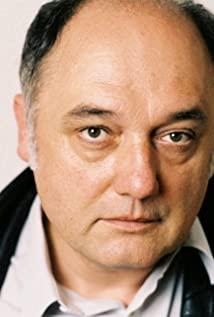Not long ago, Danish director Billy August's latest work "Lucky Pie" won the Tiantan Award at the Beijing International Film Festival. Whether it's the film's precise presentation of emotional issues or its profound analysis of the problems of modernization in Denmark, this film feels familiar, because it is exactly like two of August's previous works - and two Palme d'Or winning works. A combined version of Pell the Conqueror and The Good Betrayal.
The protagonist Piel is a construction engineer. At the beginning of the film, Piel ignores his father's threat, escapes from a gloomy religious family, and goes to the big city to pursue his dream. He studied a modern water conservancy system aimed at improving the domestic shipping capacity of Denmark, and had the ambition to build a "Venice of the North", but because the idea was too bold, he frequently hit a wall, and the old government audit officials were also rejected by Piel. Scorned as a "power maniac" (probably also saw in this colonel the shadow of his father who prevented him from leaving the family). Since there is no stable source of income, Piel can only rely on the kind-hearted restaurant maid to help him to live. The two live happily and in poverty until one day the goddess of luck comes, and Piel meets a nobleman who appreciates him - Jewish rich Ivan ·Solomon and the entire family behind him, thus embarked on the highway of life.
In the process of dating Ivan, Piel met and gradually fell in love with his sister Nanny, and soon after, he found that he fell in love with Nanny's sister Jacoby without hesitation, and married her. The troubles brought about by the family of origin began to emerge gradually from here: the parents who were shy in expressing their emotions caused Pier to develop incomparably strong lust and desire for conquest. Get a fresh and full emotional experience from your metabolism. The long-suppressed passion burst out, so much so that after marriage, Bill was still unable to get out of the predicament of emotional infidelity, and eventually dragged himself into the abyss.
On the whole, "Lucky" Biel has all the valuable characteristics of a young man in the capitalist pioneering period: he loves truth, despises authority, dares to love and hate, is full of energy, and can give up everything in order to achieve his ideals (among which Also includes a lot of precious stuff). But at the same time, as Jacobi puts it, Piel "grew under the pressure of narrow-mindedness and superstition," which explained both his weakness and his great courage; Suffering a disaster, the extreme paranoia in his character and his emotional infidelity finally became the last straw that broke the camel's back, which not only made him lose the opportunity to jump up the class, but also made him lose the more rare true love.
Although the length of the film is nearly three hours, and the direction of the second half can be described as a sharp turn, the development of the story does not give people any sense of procrastination and abruptness; on the contrary, the layers of the film are rich and clear, and all the plots have grass snakes. The foreshadowing of the gray line, so in retrospect, it is often unexpected and reasonable. Starting from the contradiction between father and son at the beginning, and then showing the character side of Biel in love, and then entering into the discussion of religion and social class; small individuals, families, large society and the entire civilization are presented in the film with extreme precision , people have to admire the original author and Nobel Prize winner Henrik Pontopidan's profound understanding of the historical process of Denmark and the complexity of human hearts. Of course, Billy August is even more of a credit, and his script adaptation and imaging capabilities have so far been perfect.
The protagonist Piel neither believes in the old social order and moral system recognized by religion, and lacks understanding of the logic of capital operation centered on the family. In this case, being abandoned by both the old and the new world becomes a kind of inevitable. However, Billy August seems to have no intention to define "Lucky Bill" simply as a character tragedy or a social tragedy. At least from a religious point of view, Bill's ending is not a God's blasphemy. The Trial: In the film, Piel smashes icons, is hostile to his father, a priest, and does almost everything against religious morals—whether it be Christianity or Judaism. Because of this, perhaps the most moving thing in the film is not the love between Biel and his wife that transcends family discipline and racial class, but Biel's heart-wrenching monologue to the priest after betraying his wife:
On top of that, I was confused and I couldn't sleep because there were so many thoughts. I'm confused and nervous, is this a test? Or punishment, life's punishment for me? Is this God's judgment on my life? I feel so restless because of it. Or nostalgia? Or is my father's curse making me so uneasy?
Only then do we discover that Piel was living in such a tragic state of being in a sturdy cage he had built for himself, a life dominated by fear and repentance, reminiscent of his compatriot Kierkegaard and his equally profoundly silent God-tormented Herman Melville; he's not completely atheist, and what he does is more a reaction to his family of origin and some kind of "predetermined destiny" than to a system of God's existence Sexual denial. He realizes that he has been destroying himself all his life for no reason, and that the passions that have nowhere to go can only be used to hurt others. He was disturbed, confused, helpless, pathetic, ridiculous, pitiful, so real that he could walk out of a movie and see all beings.
That's where Lucky Bill fails, and it's where Lucky Bill succeeds.
short interview
Q: Why adapt such a story?
A: The story of "Lucky Bill" aroused my strong interest, so I started writing the script six years ago and decided to make it out. First of all, I think Bill is a very modern character, he is self-centred, and so are the young people of our age, if you go to social media, you will know that, people need to keep confirming by liking own existence. There is a commonality here. Second, his youth reminded me of my own experiences, of my own stern father, so it also meant a lot to me to leave the family and build my own life. In the end, I think it's a great love story with a lot of humanity in it.
Q: So this is a film about the present, not about the past?
A: I have never thought of shooting a "costume work". What is more important to me is the relationship between people. Bill's character, his relationship with the people around him, is actually very modern.
Q: Having said that, many of your films seem to take place in the late 19th and early 20th centuries. Why do you prefer this time period?
A: This is really a coincidence. Pell the Conqueror does take place around this time, but only because it is also based on a novel. I personally love big epic movies, and around the turn of the century, people happened to be keen to write big epic novels. If there is any connection between Pell the Conqueror and Lucky Pel, it can only be said that both films are about father and son, and they are diametrically opposed.
Q: Your other Palme d’Or film, Betrayal of Goodwill, also depicts the relationship between two generations. The two films are somewhat similar.
A: Yes, in general there is always the greatest drama between people, which is what interests me. I've had an offer from Hollywood to do a big action movie, but I really don't see anything in it that interests me, this kind of drama can only be seen in the relationship between people .
Q: A very interesting phenomenon is that although the Jewish family in the film is very wealthy, it does not seem to be respected. What is their social status?
A: For some reason, the Jewish people in Denmark have not always had a high social status. I think it is because in such a social environment, they can only engage in commercial exchanges, and they have never been really accepted. Some of them became wealthy, like the family in the film, but they generally isolated themselves from society, and I think that's a way of protecting themselves as well. My editing assistant once told me a very interesting story. She said that after the collapse of the former Soviet Union, many Jews went to the United States or Israel, and her parents went to the United States at that time. Within a week, they got their green cards, got a house and a job, because all the local Jews were helping them. I think whether it is China or Denmark, there is not such a strong bond between people, this is their characteristic, they will support each other.
Q: The actors in "Lucky Bill" are all very good at exploring the subtleties of human nature. How did you choose the roles?
A: When we had the money to make this movie, the producer told me, choose the right person you think, and don't care about the stars. So I did a very large selection across the country. The actors of Bill and Jacobi (that is, the male and female protagonists) are well trained in acting, but they are not well-known, after all, there are too many actors in this world. If you go to LA, even the waiters are actors. I'm excited to work with them, to explore the characters themselves with them and not to care about other things.
Q: In addition to the theatrical version, there is also a TV version of "Lucky Bill". What is the difference between the two?
A: I like both versions, but the TV version is longer, with four hours. We had to make this version so that we could find investment, but I knew from the beginning that it would be the case, so I prepared two different scripts from the ground up to know which one would only be in the theatrical version, It only appears in TV dramas, and because of this, some scenes may have to be shot twice. Movies and TV series are two completely different mediums, the latter has its own unique characteristics, each episode has its arcs and drama, we need to understand how to structure it, otherwise it will become a running account.
Q: It seems that many directors in Northern Europe will shoot or edit two versions of a work. Is this a production tradition?
A: For us it's mostly about money. It is difficult to find investment for a movie of this size. The only way is to fund it from national television. It is not feasible to shoot a feature film alone. And since this is a purely Danish story, we didn't go to other countries to find funding.
Q: I'm personally curious about your relationship with Bergman, who is also the screenwriter of your film "Benevolent Betrayal". How did the two of you collaborate on this film?
A: I have a good friend who always jokes to me every time he calls me, "Hi, I'm Ingmar Bergman". Then one day, I got another call like this, and I thought it was the same friend joking again, but this time it was the real Ingmar Bergman. He said to me, "I wrote a script about my parents, and I've seen your Pell the Conqueror five times, and I think you're the guy I'm looking for. I don't want to direct that movie anymore."
I was terrified that I would be in Ingmar's shadow, but I went to see him anyway. He said to me, "I've made no fewer than fifty films and know how important it is to know the integrity of the director's intent. The script is here, you're the director, and I'll never interfere." And he really didn't—except that the heroine was his Outside of the choice, and this person later became my wife (laughs). Ingmar and I worked together on the island of Faroe for two months, mainly combing the script and giving each other ideas. After that we were always on the phone at one o'clock, and he was on time, talking at one point.
I think Ingmar Bergman is the only person who can perfectly blend reality and dream, and his method is not complicated at all, it is extremely simple. I admire this very much.
Q: Are there any new movie shooting plans?
A: There are some, one of them is in China. I can't tell you more, but we'll find out soon.
View more about A Fortunate Man reviews











